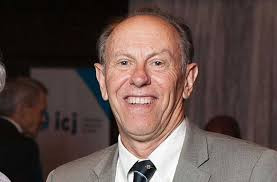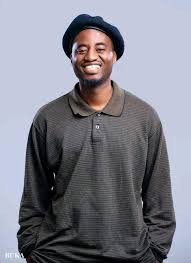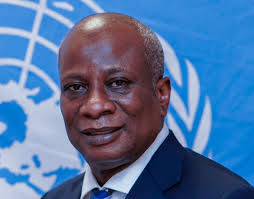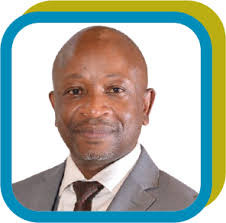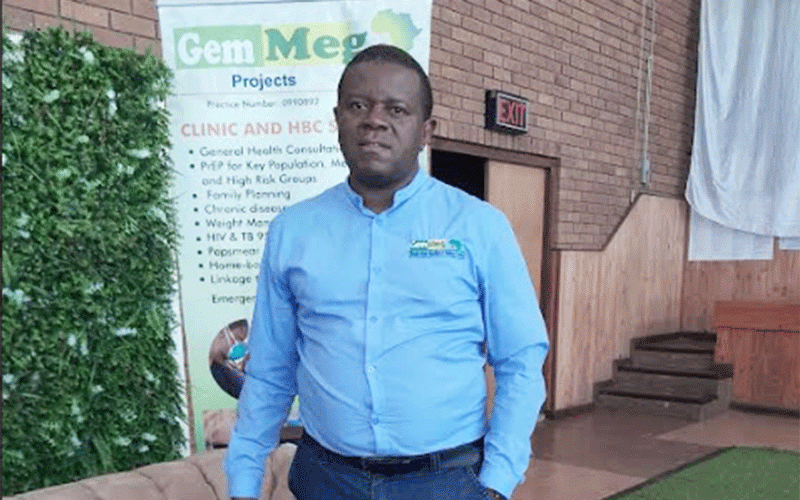
SAVING lives is his mission. However, for Butholezwe Nyathi (45) from Matabeleland South province abandoning his nursing job in Zimbabwe to cross the border into South Africa in 2003 was the only option left to save his own life.
The good part of it is that while in South Africa as an asylum seeker, Nyathi resumed his nursing career at the same time establishing companies that offer jobs and services to the host nation.
Twenty-one years down the line, Nyathi is a proud and confident theatre nurse who boasts of owning two companies in which he is the founder and chief operations officer.
He brags that he is not the one who is benefitting more from South Africa, but the neighbouring country and its people are the ones reaping the rewards.
Married to a South African wife and has three children, Nyathi contends that he is saving lives in the theatre room while creating jobs for the South Africans through his organisations.
“I am based in Johannesburg, Gauteng Province, South Africa. I have been a political activist since the late 1990s. During political tensions in Zimbabwe, I actively worked as an underground member of the Movement for Democratic Change from 2001 and skipped the border in November 2003,” he said.
“I was alleged to be one of the people who were sabotaging government by organising a nurses’ strike. I came to South Africa as an asylum seeker without a passport. My case was presented to the police and immigration officials at the border by my comrades and they allowed me to pass.”
He said he had a theatre nurse post qualification back in Zimbabwe and at some point he tried to form a Junior Nurses Association, realising that the only association available did not represent them.
- Mavhunga puts DeMbare into Chibuku quarterfinals
- Bulls to charge into Zimbabwe gold stocks
- Ndiraya concerned as goals dry up
- Letters: How solar power is transforming African farms
Keep Reading
“My move to South Africa was not planned, I literally took days off and ran away. My activism involved dealing with victims of violence and torture, I knew that there is no dead hero or hero behind bars especially when you are not known.
“I had been exposed to cadres who had gone through difficult times and I knew the devastation they were in. It was either you survived or died,” he said.
On arrival in South Africa, Nyathi worked for a construction company.
“From the theatre operating people, I was picking bricks and hot metals on rooftops or scraping floors, jumping into construction bosses' bakkies, racing in freeways, sleeping on the floors or with five people on one double bed. I survived. Then, I went back to civic society to contribute to the HIV and Aids sector,” he said.
Nyathi said he is currently involved in developmental work under two organisations that are closely related adding that as a patriotic African his intention is to service humanity.
For him, staying and working in South Africa is a big testimony of his love for Africa and believes that not everyone from Africa should leave the continent to the developed countries.
“So to show my love for Africa, I facilitated the formation of the African Development Consortium (ADC) in 2021, registered as a not-for-profit company. I am the founder and chief operations officer.
“I am also involved in Gem-Meg Projects formed in 2014. The two organisations are closely related, share premises and resources in central Johannesburg,” Nyathi said.
For him, the desire to be independent and belief that Africans can establish and run successful businesses to contribute positively in the socio-economy of the continent inspires him.
Previously, Nyathi formed a non-profit making organisation, Migrant Workers' Association -South Africa in 2011 to organise the migrants through human, material and financial resources.
“This did not work according to plan. We then formed a private company to facilitate migrant skills transfer. As a professional nurse I have been transferring skills to South Africans and other migrants in which with the care giver certificates we offer, some are gainfully employed in South Africa and some migrated to developed countries,” Nyathi said.
“We run accredited health-related courses under the Quality Council for Trades and Occupations and the Health and Welfare Sector Education and Training Authority.”
Nyathi said some Zimbabweans who migrated to European countries had passed through their organisations, adding that ADC supports pro-regularisation of the migrants.
“We have been actively involved in assisting migrants to regularise their stay in South Africa through advising as well as practically applying for various permits/visas.
“We also contributed to the Anti-Crime Summit and organised the Repatriation and Investment Conference held at Birchwood Hotel in 2022.
“These efforts are meant to organise Zimbabweans to tap into various opportunities and ensure that they go back to Zimbabwe better than when they left Zimbabwe. In all this, South Africa and its citizens are major beneficiaries of our business and health services.”
Nyathi said their private companies are run by South Africans, meaning that as a migrant he was servicing the host State.
He said this dismissed the belief that foreigners are mopping resources and grabbing jobs from South Africans.
“We are a support structure because our desire is to go back home one day to establish the same programmes. South Africans will be empowered by then.
“We are also complying with South African laws in that the majority of our workers are South Africans. We started the company at zero capital and this was very difficult for us.
“South Africans get jobs using our training qualifications, which excites us. We are in the process of making a documentary where our former learners will give testimonies of their journies.”
He said the South African government was also benefiting immensely from the tax remittances from his companies.
“ADC is running with the Sustainable Development Goals. We are looking forward to creating more partnerships in line with goal number 17: Partnership for development. ADC will be forming clusters of like-minded people and organisations for consortium growth,” he said.
Nyathi has been accorded the Refugee Status with all rights enshrined in Chapter 2 of the South African Constitution except the right to vote.
“I have a Certificate from the Standing Committee on Refugee Affairs, a parliamentary committee. Not all refugees get that certificate which allows one to apply for permanent residence," Nyathi said.
“It was not easy to acquire these. One has to go through several interviews for the Refugee Status Determination Officers to determine the authenticity of one's case.
“The process required me to behave as an activist. I almost went on a one-naked man demonstration to the Union Building before I got a call from the President's Office. In Africa people have to fight for everything.”
Nyathi said the South African Home Affairs department at some point cancelled his permit and the nurses’ council could not register him to practice and he practised as an HIV clinician.
“Fortunately, as an Education, Training and Development practitioner, opportunities are always there, I ended up training all over South Africa and stayed in the villages in Limpopo for a while,” he said.
Nyathi, however, bemoaned his status saying leaving as a refugee was psychologically affecting him.
”I do not agree with the people governing our country. They took a beautiful country and dragged it into the mud. Our people are dying here in South Africa, families have been scattered and destroyed as partners, parents and children have been separated,” he said.
“As Butholezwe (national warrior), I believe we are in a serious fight. We need to fight anything that perpetuates social and economic ills. As Africans, let's unite and build the Africa we want.”
For Nyathi, Zimbabweans' attitude towards the challenges the country faces is disappointing.
Nyathi is not the only nurse who left Zimbabwe due to the political and economic crisis.
Nomagugu Khumalo (52), is one of the thousands of migrant nurses who fled the country at the height of political and economic problems.
For Khumalo, South Africa and its citizens are benefiting the most from her professional work more than her people back home.
She said South African citizens and authorities should stop viewing migrants only as beneficiaries in their countries.
The mother-of-three worked as a registered general nurse in Zimbabwe before migrating to South Africa after training at the United Bulawayo Hospitals and working at Mpilo Central Hospital.
“Nurse training then was more like apprenticeship. We earned while training. Accommodation, food and transport were contentious and as trainees we did not feel the pinch because we lived at the nurses’ home. We did not require any transport and we bought food using tokens which were very affordable,” Khumalo said.
“The work environment was toxic because freedom of speech and association was curtailed.
“We were expected to take orders as they were given and not question anything, just like in the army. At Mpilo Hospital everyone with dreadlocks was at some point ordered to cut them. I refused and asked them to show me a Statutory Instrument to back their order.”
Khumalo, who is based at Ekurhuleni Metro in South Africa, migrated to South Africa in 2008 at the height of Zimbabwe’s political and economic instability.
“My salary could not pay rent or buy food. I found myself unable to take care of my children and my mother," Khumalo said.
On settling in South Africa, she got a nursing job at a local hospital. It was a challenge copying up with sophisticated machinery at the health institution since Zimbabwe’s hospitals had no such tools.
“I work in the Intensive Care Unit and trauma emergency using the kind of machinery we never had back home. The staff is always warm and welcoming. We do therapeutic healing sessions once in a while, with South Africans being the majority beneficiaries,” she said.
Khumalo gained experience in the use of the equipment saying authorities in South Africa respected labour rights enshrined in the International Labour Organisation' statutes.
Since settling in South Africa she has managed to upgrade herself academically.
Khumalo acquired a work permit and registered with the South African Nursing Council.
“For registration to be complete, the mother body — Zimbabwe Council of Nurses is supposed to offer a letter of accreditation to the nursing council where one wants to register. Zimbabwean authorities were reluctant to release the documents,” she said.
Besides the nursing job, Khumalo formed a civic organisation — Gukurahundi Genocide Survivors 4 Justice that pushes for the address of Zimbabwe’s post-independence atrocities.
“It links with other non-profit organisation in raising awareness on Gukurahundi genocide with the aim of rousing the interest of the international community,” Khumalo said.
On the issue of foreigners running companies in South Africa, Global Immigration and Legal Consultancy legal director Gabriel Shumba said it takes one week to register a company in South Africa, as the Department of International Trade and Industry is very efficient.
“Companies may be registered in terms of the Companies Act and there are only a few restrictions in the company activities. The most difficult thing is that it is not easy to obtain a business visa in terms of Section 15 of the Immigration Act,” Shumba said.
“There are 2014 regulations that make it compulsory for the company to have R5m upwards to register a company. The most attractive feature to investors is that there is no local requirement or percentage for foreigners as those with enough capital can register. Likewise, shareholders can be either local or foreign.”
Shumba said there are also no restrictions on directors, but certain industries have a percentage requirement.
The South African cabinet recently approved the White Paper on Citizenship, Immigration and Refugee Protection towards a complete overhaul of the Migration System in the country which was adopted in 1999.
The White Paper seeks to recognise migrants in the Southern African Development Community region, to allow them to run businesses in South Africa and it proposes a Sadc work visa.
The process started in 2015 but the White Paper was gazetted in 2017 and the review was after realising the immigration policy in South Africa as Eurocentric and not accommodating Africans.
According to reports, by 2019, the United Kingdom’s National Health Service employed 4 049 Zimbabwean healthcare professionals including doctors, nurses and clinical support staff.
On August 13, 2024, the Zimbabwe's Health Service Board reported that over 2 200 medical personnel left its services in 2021. This includes 900 nurses. South Africa has been cited as one of the major beneficiaries of this mass exodus from Zimbabwe, together with the UK and Canada.

